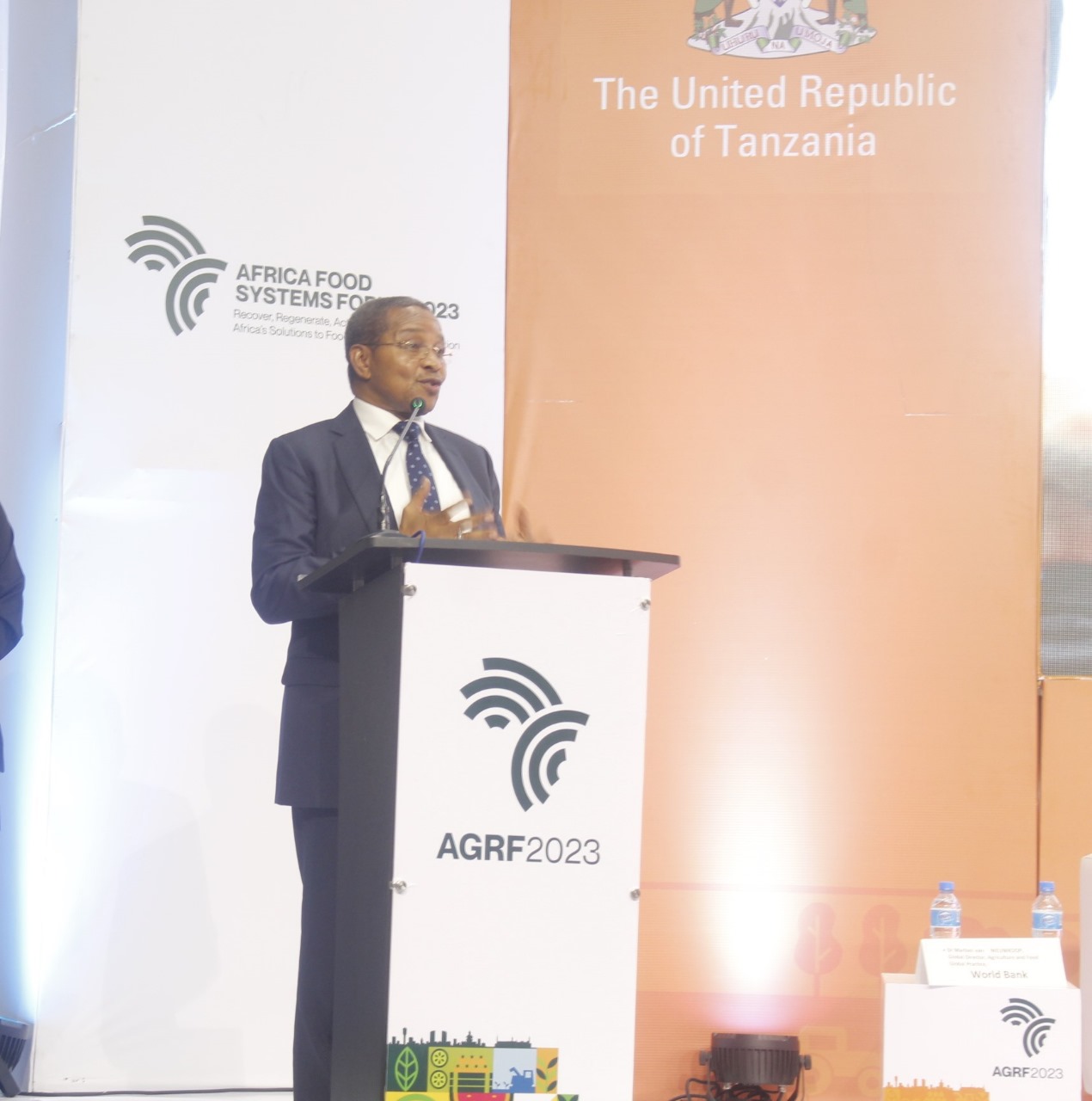|
Getting your Trinity Audio player ready...
|
Africa has a real opportunity to transform its food systems, reduce its import bill, and create wealth, HE. Dr. Jakaya Kikwete, the former president of the United Republic of Tanzania and Africa Food Prize (AFP) chair has said.
He made the remarks at the 2023 African Green Revolution Forum (AGRF) during a session titled ‘Parliamentary and Policy Makers Forum: Creating an Enabling Environment for Private Sector Investments and Trade.’
He highlighted that at the onset of 2022, there was optimism for a full recovery and transformation of Africa’s Food Systems. The COVID-19 pandemic, extreme weather events, emerging pests and diseases, and food price inflation had thrown Africa off its feet and there was another disruption by the Russian-Ukraine war, which has had a negative impact on the continent’s food and
nutrition security.
These negative events have happened while the continent continues to grapple with other challenges such as surging population growth and regional conflicts which are impacting Africa’s ability to transform its food systems. The number of hungry people in the continent continues to grow by the day.
“Worse enough, some of these catastrophes are not of our making. For example, Africa is gravely affected by the impact of climate change despite only contributing 4% of total emissions. However, we continue to experience extreme weather conditions, and we are told that this situation alone has the potential to wipe out 15% of Africa’s GDP by 2030. Currently, Africa loses about 280 million tons of cereal crops per year from land degradation. The cost of inaction is estimated at around 12% of the GDP of all African countries,” HE Kikwete said.
These challenges have further exacerbated the food and nutrition insecurity situation in the continent. Today, approximately 430 million people in Africa live in extreme poverty and cannot afford a decent and healthy diet. The Food and Agriculture Organization of the United Nations (FAO) estimates about 60 million under 5 children suffer from stunting, while another 14 million suffer from wasting.
HE Kikwete said despite all of these seeming gloom and doom, Africa has a real opportunity to transform its food systems, reduce its import bill, and create wealth. However, he said to transform Africa’s food systems it is required that stakeholders do business unusual.
Among other things, this will include:
- Reducing unpredictability of policies and regulations to enhance investment from the private sector.
- Improve on implementation of policies and regulations at the regional level for economic, political, and social integration.
- Remove non-tariff barriers, which is one of the single impediments to agri-food systems transformation.
“These pathways highlight the importance of a stable legal and policy environment, which builds the confidence of farmers, traders, industrialists, and other key actors across the general agriculture ecosystem. In other words, there needs to be certainty and predictability in the way we produce, process, distribute, and consume food in our continent,” he said.
Africa is home to 60 percent of the world’s uncultivated arable land. The agri-food industry in Africa presents a huge opportunity for investment in all its value chain from production and processing to packaging and trading.
There are vast investable opportunities in the agriculture sector which have the potential for job creation, poverty eradication and food and nutrition security in our continent. In all this, the private sector is the key. The past successes in engaging the private sector in agriculture demonstrate what is possible, and this has to be benchmarked.
HE Kikwete urged policymakers to legislate specific policies that will accelerate agriculture growth, food security, and surplus production. He said the role of policy-making is critical towards achieving Africa’s food Systems transformation, and the Legislature and the Executive need to work closely to ensure the right enabling environment is in place.
He added that Parliamentarians should be in the forefront to ensure policies:
- Favour flexibility in the agri-food systems so that to benefit the producers, traders, and consumers.
- Support the development of inclusive trade and export frameworks. This is important to encourage the participation of small businesses, the youth, and women, and
- Support the domestication of the African Continental Free Trade Area (AFCFTA) protocols at the country level to ensure the continental market is open for access by all African countries.






